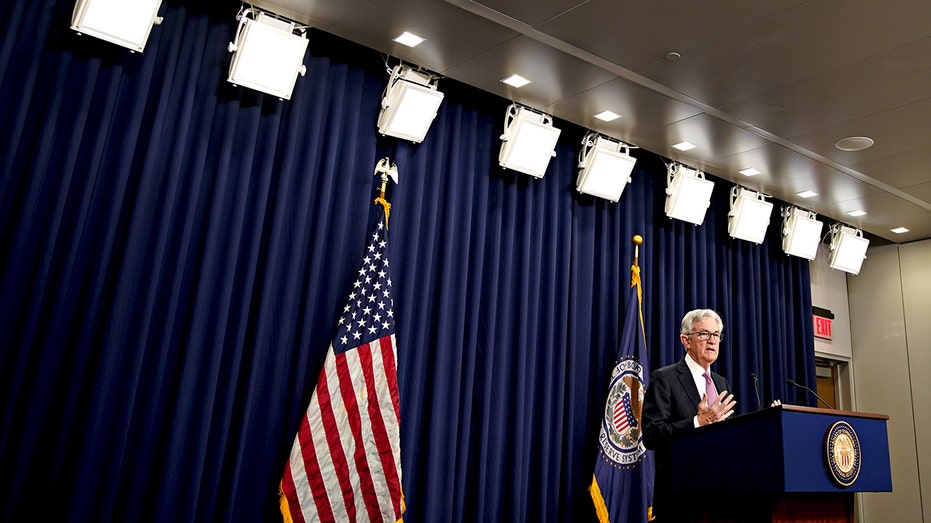What is a soft landing, and why does the Fed keep talking about it?
History shows Fed struggles to engineer successful soft landing
The Fed ‘can’t avoid’ a recession: Dick Bove
Odeon Capital Group chief financial strategist Dick Bove provides insight into how the Fed is handling inflation.
The Federal Reserve is officially at war with inflation, raising interest rates at the fastest pace in decades as it looks to reduce demand in the economy.
But the U.S. central bank is playing a dangerous game: Policymakers are trying to cool consumer demand enough so that prices stop rising, but if they fail, they risk throwing the country into a recession. That elusive sweet spot between curbing demand without crushing the economy is what's known as a soft landing – and history shows that the Fed often struggles to successfully thread the needle between tightening policy and preserving growth.
ONE OF BIDEN'S FAVORITE ECONOMISTS SEES A HIGH CHANCE OF RECESSION IN NEXT 2 YEARS
Recent research from Alan Blinder, a former Federal Reserve board vice-chairman and a Princeton economist, identified 11 tightening cycles since 1965, of which eight were followed by recessions. Still, that doesn't mean a severe recession is guaranteed: There were five instances of either very mild recessions in which GDP fell less than 1% or there was no economic decline at all.
Fed Chairman Jerome Powell has identified three examples when the Fed successfully engineered a soft landing: In 1965, 1984 and 1994, the central bank tightened monetary policy, reduced inflation and saw no decline in growth.
Median projections from March show that central bank officials are confident they can engineer such a landing: They anticipate core inflation falling to 4.1% at the end of the year, 2.4% next year and 2.3% in 2024, while they believe unemployment will hold steady at 3.5% to 3.6% for some time.
Despite that, there are growing fears on Wall Street that the Federal Reserve could inadvertently send the economy into a recession as it takes a more aggressive approach to fighting inflation, which is still near a 40-year high.

A man shops at a Safeway grocery store in Annapolis, Maryland, on May 16, 2022, as Americans brace for summer sticker shock as inflation continues to grow. ((Photo by JIM WATSON/AFP via Getty Images) / Getty Images)
Policymakers raised rates by a half-basis point in May, and have all but promised that similarly sized increases are coming at future meetings in June and July. Bank of America, Deutsche Bank and Fannie Mae are now among the firms warning that rapid Fed tightening is likely to tip the economy into another downturn.
Economic growth in the U.S. is already slowing. The Bureau of Labor Statistics reported earlier this month that gross domestic product unexpectedly shrank in the first quarter of the year, marking the worst performance since the spring of 2020, when the economy was still deep in the throes of the COVID-induced recession.
"The window for the Fed to engineer a soft landing has likely closed, since the economy is already starting to deteriorate before the bulk of the Fed's inflation-fighting tightening actions have taken place," said Danielle DiMartino Booth, CEO and chief strategist at Quill Intelligence and a former adviser to a previous Dallas Fed president. "The last economic pillar standing is the job market, but we’re already seeing a weakening in new job posting."

Jerome Powell, chairman of the U.S. Federal Reserve, speaks during a news conference following a Federal Open Market Committee (FOMC) meeting in Washington, D.C., U.S., on Wednesday, May 4, 2022. (Photographer: Al Drago/Bloomberg via Getty Images / Getty Images)
Powell has acknowledged there could be some "pain associated" with reducing inflation and curbing demand but pushed back against the notion of an impending recession, identifying the labor market and strong consumer spending as bright spots in the economy. Still, he has warned that a soft landing — the sweet spot between cooling demand without crushing it and triggering a recession — is not assured.
GET FOX BUSINESS ON THE GO BY CLICKING HERE
"It will be challenging, it won’t be easy. No one here thinks that it will be easy. Nonetheless, we think there are pathways... for us to get there," Powell said during a recent interview with Marketplace.





















